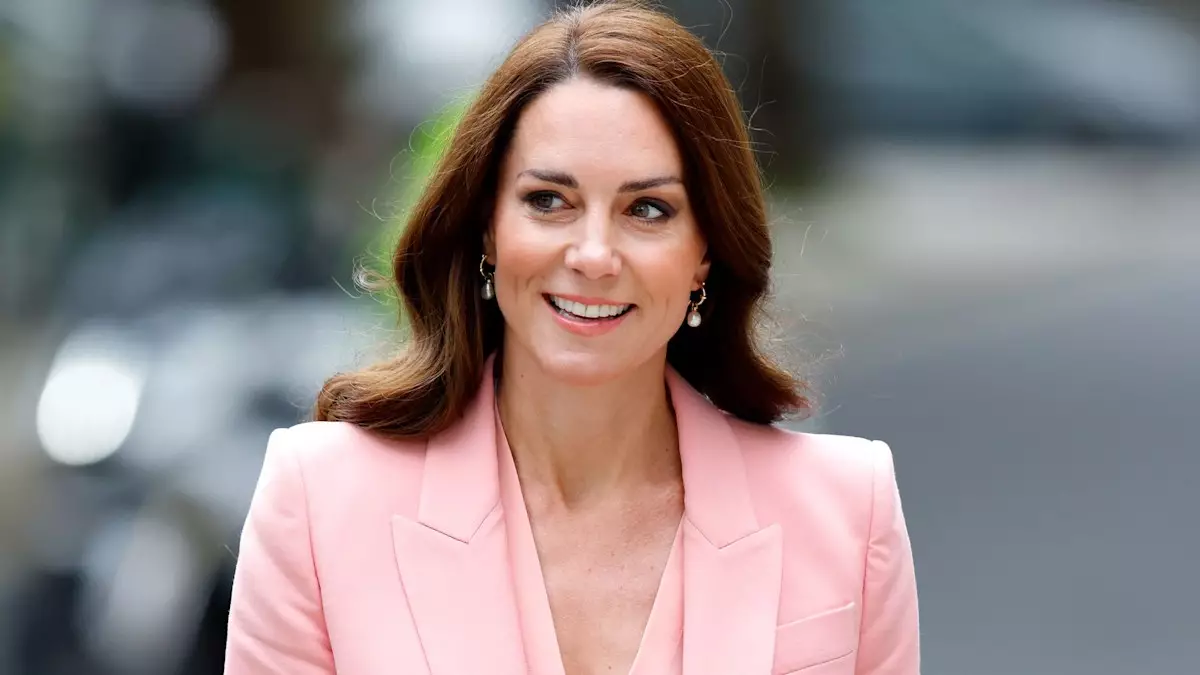In an era where the significance of early childhood development is finally receiving the attention it deserves, the Princess of Wales, Kate Middleton, has emerged as a catalytic force for change. Her establishment of the Business Taskforce for Early Childhood, launched in March 2023 through the Royal Foundation, signifies a pivotal step towards aligning corporate responsibility with child development initiatives. This ambitious endeavor seeks to engage companies in investing not only in their workforce but in the future of their society by operating from the premise that nurturing young children is tantamount to nurturing a productive economy.
This shift in perspective is nothing short of revolutionary, suggesting that an investment in early childhood is not merely philanthropic—it is strategic. By emphasizing long-term societal benefits and economic returns, the Princess is reshaping corporate attitudes toward parental leave and early childhood education, thus demonstrating real leadership.
Groundbreaking Changes in Corporate Policies
A compelling example of this movement in action is Deloitte UK’s recent decision to enhance its parental leave policy by granting 26 weeks of full pay to all parents. This drastic policy change reflects an awakening among businesses that balance sheets can benefit from more supportive family infrastructure. The announcement has been met with enthusiasm from advocacy groups like The Dad Shift, highlighting a critical issue in the current landscape of paternity leave in the UK.
Currently, UK law permits new fathers a mere two weeks of paid leave, a shocking standard that places the country amongst the lowest in Europe for paternal support. Alex Lloyd-Hunter, co-founder of The Dad Shift, articulated the grassroots frustration surrounding this policy, noting that many families are left to navigate the complexities of parenthood with insufficient support. His sentiment resonates with many—if leading corporations can embody progressive policies, surely the government should be held accountable for modernizing its statutory offerings.
The Need for a National Approach
While it’s invigorating to witness major companies embrace robust parental leave programs, one must acknowledge that a vast number of smaller businesses struggle to keep pace due to financial constraints. This disparity leads to inequitable scenarios where only employees of sizeable corporations enjoy adequate leave, while others miss out on essential bonding time with their newborns.
The harrowing truth is that self-employed individuals receive no paid paternity leave at all, leaving a significant section of the workforce vulnerable during one of life’s most critical transitions. It’s vital that this conversation shifts from isolated corporate efforts to a broader, systemic approach through government reform. Immediate action is necessary to create universal policies that guarantee all fathers and non-birthing parents receive a fair amount of well-compensated leave.
Collaborative Efforts Driving Change
The Business Taskforce for Early Childhood isn’t merely a rights-based initiative; it’s a symbol of collaboration between corporate entities and social advocacy. Companies like IKEA and Iceland Foods are also stepping up—each contributing in unique ways that underscore corporate accountability in social issues. IKEA’s partnership with local baby banks, for instance, showcases a commitment to ensuring that families have access to essential resources. Likewise, Iceland Foods’ initiative to develop toddler meals in concert with Mumsnet highlights the intersection of commerce and compassionate social policy.
Investments in early years education, evidenced by initiatives to train over 1,300 teachers, echo the sentiment expressed in the Taskforce’s Case for Change report, which estimates a potential economic benefit of £45.5 billion annually through such investments. This isn’t just charity; it’s enlightened self-interest for corporations looking to bolster their future workforce and operational efficacy.
A Legacy in the Making
As the Princess of Wales continues to champion early childhood initiatives—culminating in campaigns like “Shaping Us” that spotlight the critical developmental years from pregnancy to age five—it is evident that her approach is multifaceted. She has managed to weave together threads of social good, corporate responsibility, and governmental accountability into a coherent narrative advocating for the future of children in her country.
Kate’s commitment to this cause signals a generational shift in how society perceives the intertwined fates of business and family welfare. Her efforts illuminate a path forward—one where early childhood investment is not just a societal obligation but a profound opportunity for all sectors of society to flourish.

